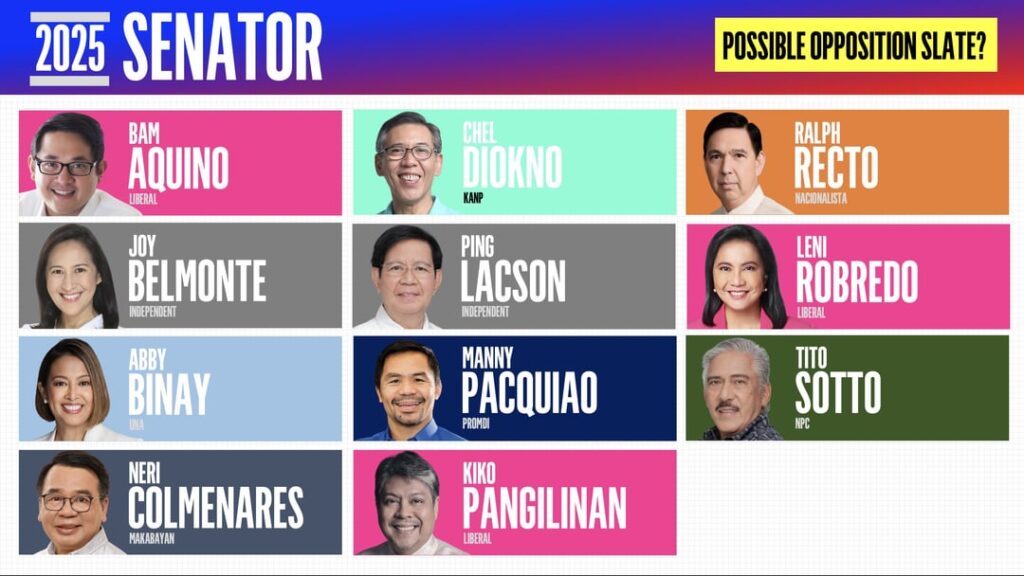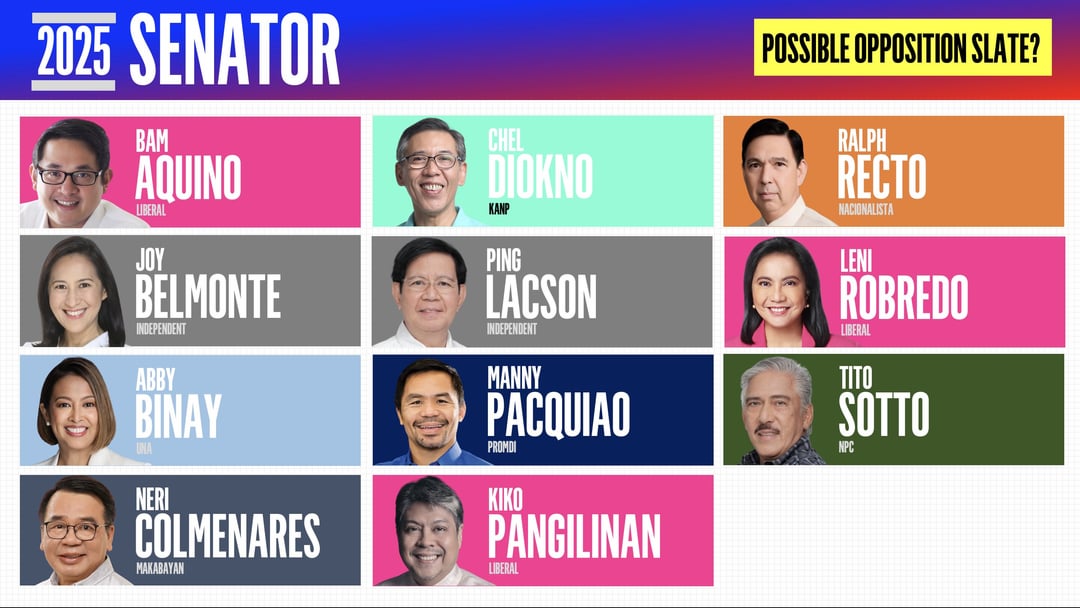
Decoding the 2025 Philippine Elections: Understanding Candidates and Their Platforms
The 2025 Philippine elections are rapidly approaching, and with them comes a surge of information, speculation, and, most importantly, candidate announcements. Understanding the backgrounds and platforms of these individuals is crucial for making informed decisions that will shape the future of the Philippines. This comprehensive guide provides an in-depth look at what to consider when evaluating potential candidates for the 2025 elections, focusing on their experiences, qualifications, and proposed policies. Our aim is to equip you with the knowledge to navigate the complexities of the Philippine political landscape and make a well-informed choice.
The Significance of Candidate Background and Platform in the 2025 Elections
In any election, the candidates’ backgrounds and platforms serve as the bedrock upon which voters base their decisions. However, in the context of the Philippines, these elements take on an even greater significance due to the nation’s unique political history and socio-economic challenges. A candidate’s background, encompassing their education, professional experience, and previous political involvement, provides insights into their competence and character. Their platform, outlining their proposed policies and solutions to national issues, reveals their vision for the country’s future. Recent analyses highlight that voter decisions increasingly hinge on these two factors.
The Philippines faces a complex web of issues, including poverty, corruption, inequality, and environmental degradation. Addressing these challenges requires leaders with a deep understanding of the problems and a clear, actionable plan for tackling them. A thorough examination of candidate backgrounds and platforms allows voters to assess their preparedness and commitment to addressing these critical issues.
Moreover, the Philippines has a history of political dynasties and patronage politics. By scrutinizing candidate backgrounds, voters can identify potential conflicts of interest and assess whether candidates are truly committed to serving the public interest or simply perpetuating existing power structures. A well-defined platform provides a roadmap for holding elected officials accountable for their promises and actions.
Analyzing Candidate Backgrounds: What to Look For
Evaluating a candidate’s background requires a holistic approach, considering various aspects of their life and career. Here are some key areas to focus on:
- Education: What is the candidate’s educational background? Did they attend reputable institutions? What field of study did they pursue, and how does it relate to the challenges facing the Philippines?
- Professional Experience: What is the candidate’s professional history? Have they held positions of responsibility and leadership? What accomplishments can they point to as evidence of their competence and effectiveness?
- Political Experience: Has the candidate held public office before? If so, what was their track record? Did they uphold ethical standards? Did they deliver on their promises?
- Integrity and Ethics: Does the candidate have a reputation for integrity and ethical behavior? Have they been involved in any scandals or controversies? Are they transparent about their finances and affiliations?
- Community Involvement: Has the candidate been actively involved in community service or advocacy? Do they have a genuine understanding of the needs and concerns of ordinary Filipinos?
It’s also important to verify the accuracy of information presented by candidates. Fact-checking websites and investigative journalism can help uncover discrepancies and inconsistencies in their claims.
Deconstructing Candidate Platforms: Key Policy Areas
A candidate’s platform should provide a clear and comprehensive vision for addressing the country’s most pressing challenges. Here are some key policy areas to consider:
- Economy: What are the candidate’s plans for promoting economic growth and creating jobs? How will they address poverty and inequality? What is their stance on foreign investment and trade?
- Education: What are the candidate’s proposals for improving the quality of education and increasing access to educational opportunities? How will they address the challenges facing teachers and students?
- Healthcare: What are the candidate’s plans for improving healthcare access and affordability? How will they address the challenges facing the healthcare system, such as inadequate infrastructure and a shortage of healthcare professionals?
- Environment: What are the candidate’s proposals for protecting the environment and addressing climate change? How will they promote sustainable development and responsible resource management?
- Governance: What are the candidate’s plans for combating corruption and promoting good governance? How will they strengthen institutions and ensure accountability?
- Social Justice: What are the candidate’s proposals for promoting social justice and equality? How will they address issues such as gender inequality, discrimination against marginalized groups, and human rights violations?
Pay close attention to the specific details of each candidate’s platform. Are their proposals realistic and feasible? Are they supported by evidence and data? Do they address the root causes of the problems, or do they simply offer superficial solutions?
Utilizing Online Resources for Candidate Research
The internet provides a wealth of resources for researching candidates and their platforms. Official campaign websites, news articles, social media profiles, and independent fact-checking websites can all provide valuable information. However, it’s important to be critical of the information you find online. Be wary of biased sources and misinformation. Look for credible news organizations and fact-checking websites that adhere to journalistic ethics.
Social media can be a particularly useful tool for engaging with candidates and learning about their views. However, it’s also important to be aware of the potential for echo chambers and filter bubbles. Seek out diverse perspectives and be willing to challenge your own assumptions.
The Role of Media in Shaping Public Perception of Candidates
The media plays a crucial role in shaping public perception of candidates. News organizations, television channels, and radio stations all have the power to influence public opinion through their coverage of the elections. It’s important to be aware of the potential for media bias and to seek out diverse sources of information. Consider the ownership and editorial policies of different media outlets when evaluating their coverage of the elections.
In recent years, social media has also become a significant force in shaping public perception of candidates. Candidates use social media to communicate directly with voters, bypassing traditional media outlets. However, social media can also be a breeding ground for misinformation and propaganda. It’s important to be critical of the information you find on social media and to verify its accuracy before sharing it.
Understanding the Philippine Political System
To effectively evaluate candidates and their platforms, it’s essential to have a basic understanding of the Philippine political system. The Philippines has a multi-party system, with a wide range of political parties and ideologies. The country’s political landscape is often characterized by shifting alliances and coalitions.
The Philippine government is a presidential republic, with a bicameral legislature consisting of the Senate and the House of Representatives. The President is the head of state and head of government. Elections are held every three years for local and national positions. Understanding the structure and function of the Philippine government can help you better understand the powers and responsibilities of elected officials.
The Impact of Voter Education on Election Outcomes
Voter education plays a critical role in ensuring free, fair, and informed elections. When voters are well-informed about the candidates and their platforms, they are more likely to make choices that reflect their best interests and the best interests of the country. Voter education programs can help voters understand the issues, evaluate candidates, and participate in the electoral process.
Various organizations, including non-governmental organizations (NGOs) and government agencies, conduct voter education programs in the Philippines. These programs often involve workshops, seminars, and the distribution of educational materials. Voter education is particularly important in a country like the Philippines, where many voters have limited access to information and education.
Looking Ahead: Key Issues Facing the Philippines in 2025
The 2025 elections will be held at a critical juncture for the Philippines. The country faces a number of significant challenges, including:
- The ongoing COVID-19 pandemic and its economic consequences
- Rising inflation and the cost of living
- Climate change and its impact on vulnerable communities
- Political polarization and social divisions
- Corruption and weak governance
Candidates for the 2025 elections will need to address these challenges with concrete and innovative solutions. Voters should carefully evaluate each candidate’s proposals and assess their ability to lead the country through these difficult times.
A Path Forward for Informed Voting in 2025
The 2025 Philippine elections present a crucial opportunity for Filipinos to shape the future of their country. By taking the time to thoroughly research candidates, understand their platforms, and engage in informed discussions, voters can make choices that will lead to a more prosperous, just, and sustainable Philippines. Remember to look beyond the surface, scrutinize the details, and demand accountability from those seeking to lead. Share this information with your friends and family to foster a more informed electorate and ensure that the voices of the Filipino people are heard loud and clear.

